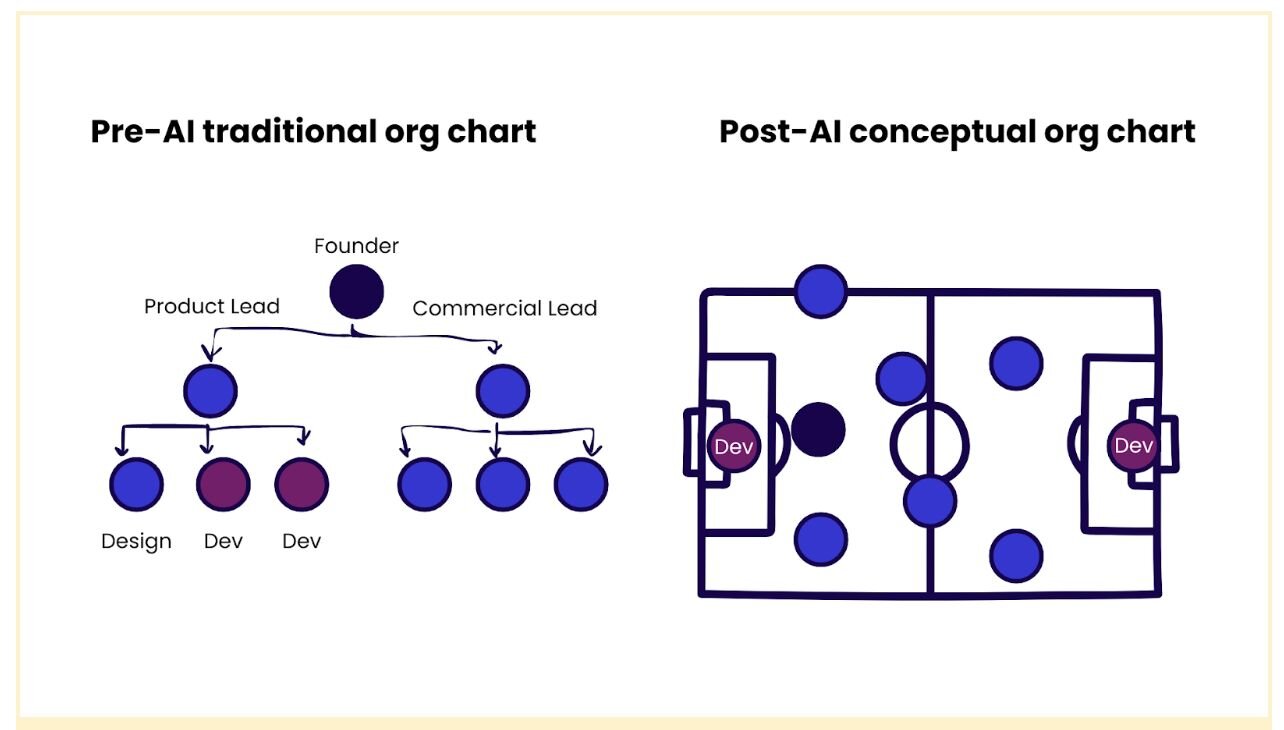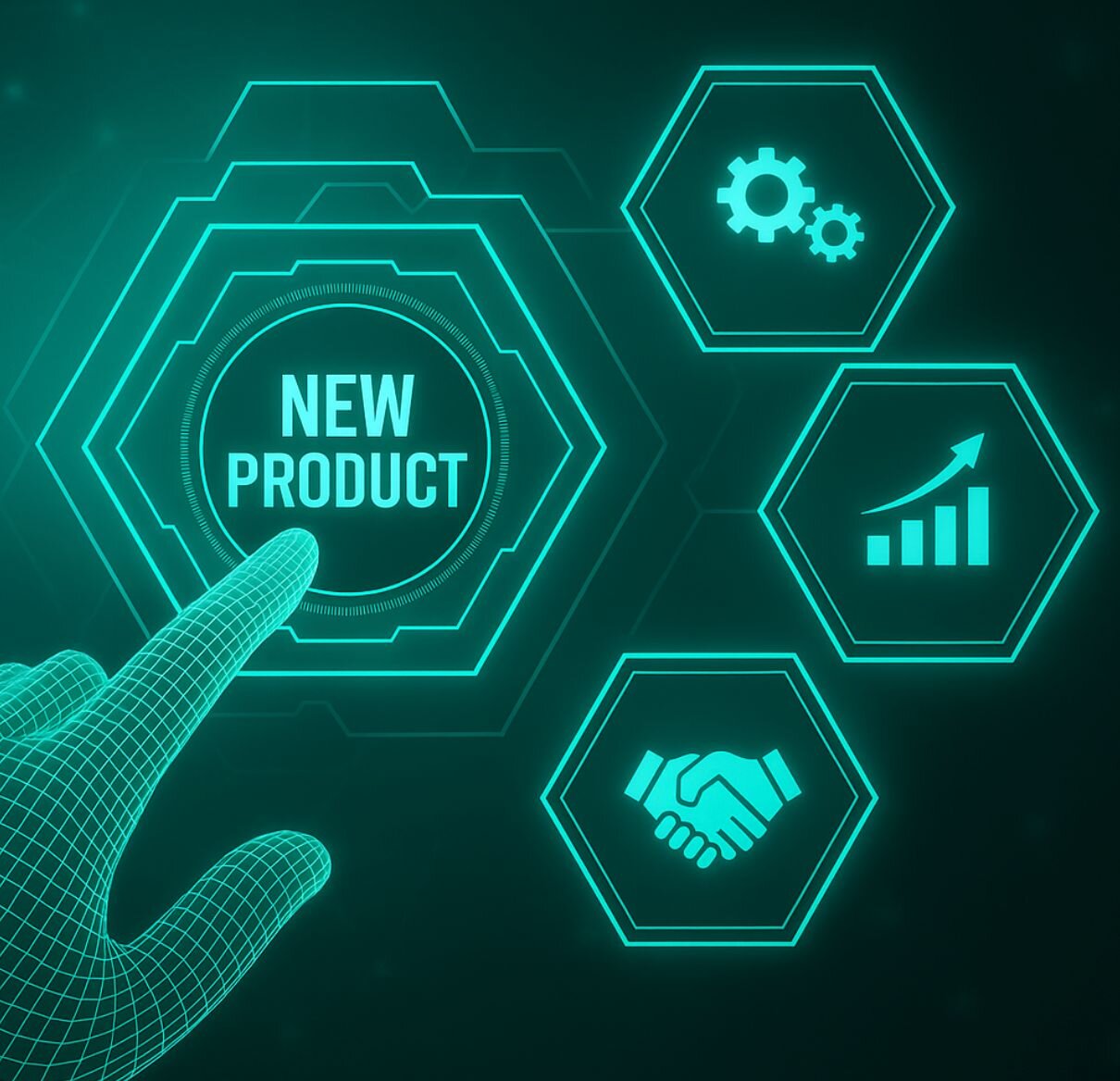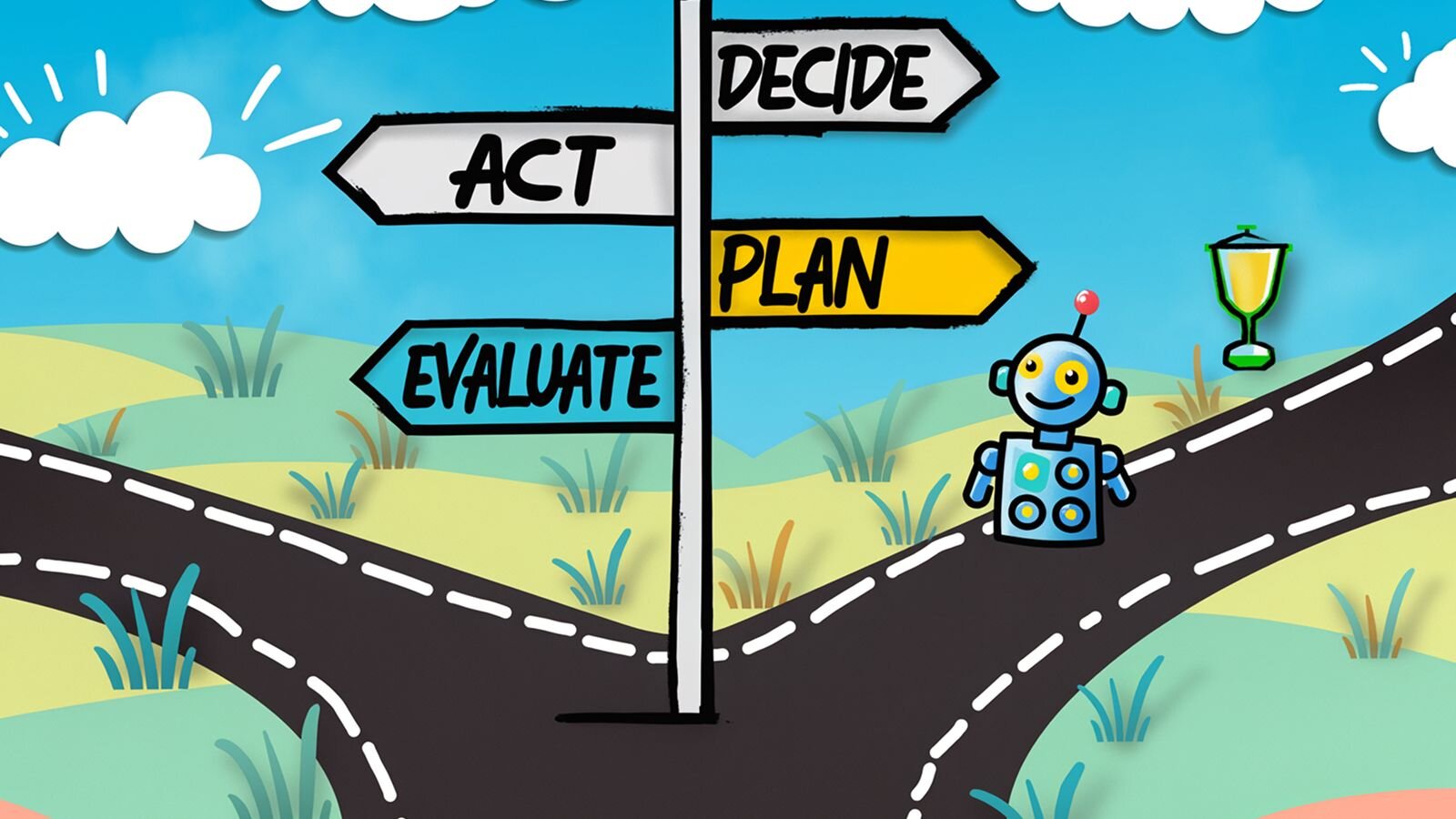I'm a product manager with more than 10 years' experience in digital products, but I didn't always work in Product. As a former marketer, I wanted to write a guide on how to get into product management for professionals aiming to make a successful jump. Here it is!
In this guide, I cover:
- Competition for product roles
- Assess your product skills
- Landing a product management interview
- How to interview for a product manager position
- The job offer
Competition for product roles
So, how do you become a Product Manager? Let me begin by telling you the truth: competition for product roles is fierce. I’ve crunched numbers from 17 online businesses all over the western world with +600k employees and this is what I’ve got:
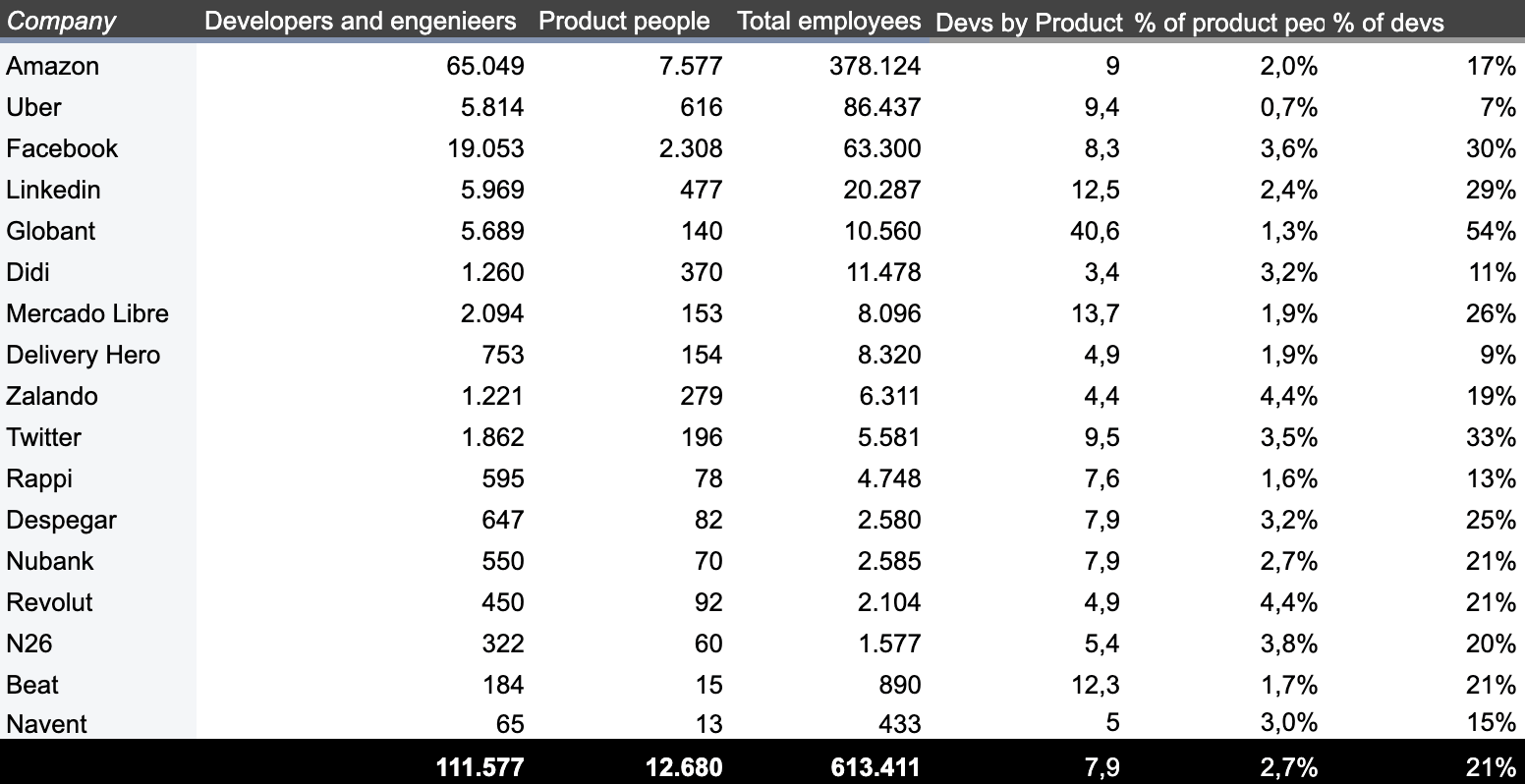
While 21% of employees are developers, only 2.7% are product people. Not only that, but the academic background required to apply for a product job is much more diverse.
So, are product managers delivered to companies by white storks? No, they're delivered mostly by the IT department.
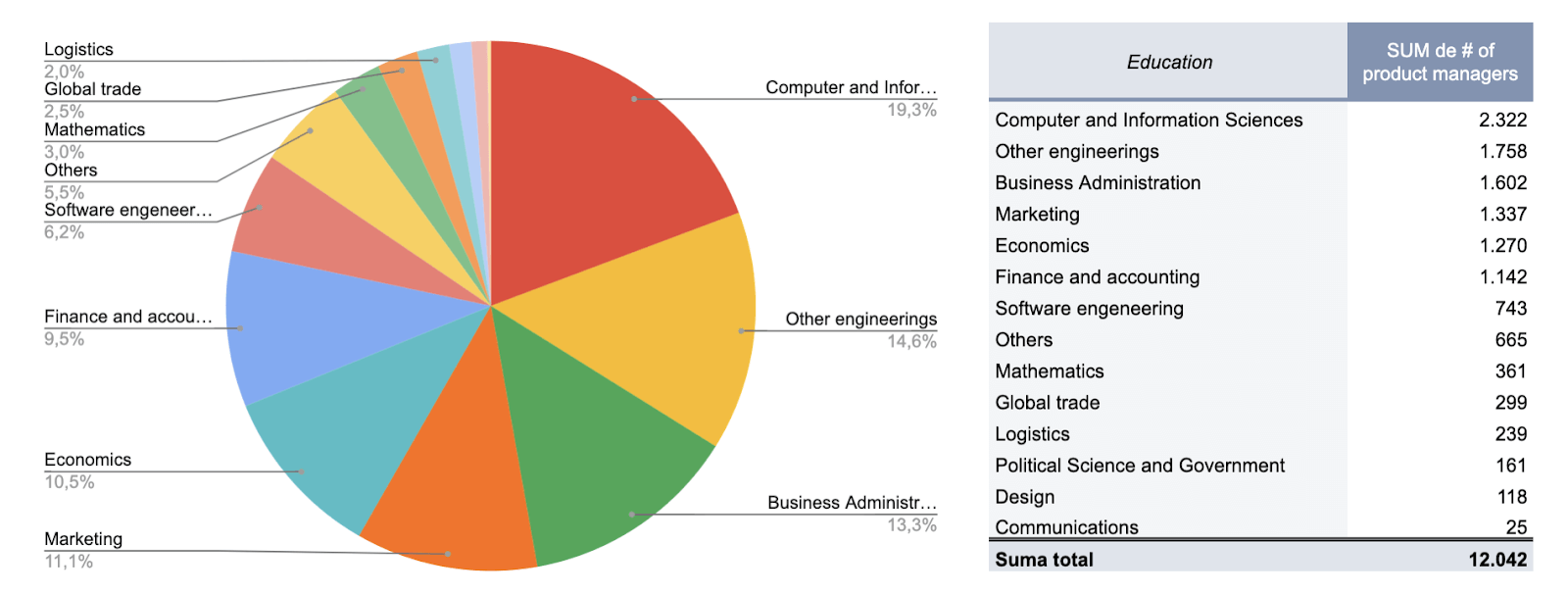
Product management exists at the intersection of technology, design, and business (read more on this in Martin Eriksson's post 'What, exactly, is a Product Manager?'). If you're coming from one of those fields, you're in luck because you have a deep understanding of at least one of those domains, and you've probably worked closely with a product manager and had a chance to get a close look at their day-to-day.
But, as you can see in the graphic, product people come from every educational background you can imagine. This is important for you to know: depending on your professional background and experience, you may have to work harder, but it can be done.
Assess your product skills
If you're currently trying to work out how to get into product management, an important first step is to assess your product skills because product managers wear all kinds of hats. Product managers need to develop empathy, creativity, leadership, and at the same level, hardcore analysis abilities, and a data-informed mindset.
The following list should give you an idea of which skills to develop. As it’s a generalist profession, we have to check at least the basics on every box that's relevant to our field. My advice is to go over it and rate yourself from 1 to 5, then focus on improving the lowest scores.
Most companies will be looking for someone with:
Data-driven skills
General knowledge of statistics will be important as will experience in using tools and frameworks to leverage data, such as Google Analytics, Tableau, Data Studio, and MySQL, and with multivariable testing. If you're able to think analytically and have estimation solving abilities you'll be in an even better position.
Gain some insights via this episode of The Product Experience Podcast — Cracking The Data Code. In it, Lens.ai founder Mike Bugembe talks about working with data scientists, and how best to collect, work with, and make decisions based on data. You can also explore more content about Data-Driven Product Management on Mind the Product.
Communications skills
Excellent verbal and written skills are key. Hiring managers will assess how your resume is presented and how you respond to questions during the interview. Communication skills are then vital to be successful in a Product Manager role. In this #mtpcon London talk, The Importance of Being Clear, Jayne, former VP Product at Monzo, discusses the importance of writing clearly in order to make better decisions and diversify thinking. In an MTP Engage talk, Shaun Russell also talks about the importance of Mastering Conflict and Communication.
User-centric approach
Successful product managers take both quantitative and qualitative approaches to research and understand the basics of usability testing. They use tools and frameworks to recruit and obtain information from users, such as Hotjar, Google Forms, Lookback, and CrazyEgg. In short, being user-centric — which means truly understanding your target audience and what motivates them — is critical to being able to make the right decisions for your product.
Technical abilities
You'll need product knowledge and the correct use of terminology. Things a company will need from you include the ability to; run discovery, write user stories writing and build roadmaps. Agile or other software development frameworks knowledge, product design knowledge, and software development knowledge are also important.
Leadership
Any product manager needs to be able to lead a discussion, at least on a basic level. With that in mind, leadership training of some kind, or some experience leading cross-functional teams, will be beneficial. People with coaching skills and experience in stakeholder management will be in a strong position too.
Strategic mindset
Finally, product managers need a high-level understanding of the industry and competitive landscape, business analysis experience, and strong problem-solving abilities.
Assess your product skills today
If you’d like to assess your own product skills, check out Mind the Product's free Product Skills Toolkit. It's designed to help you assess your skills and take the next step on your product learning journey. The toolkit includes a PDF download, video tutorials, and an email series. You can also explore Mind the Product's library of Product Management Skills content.
Studying to fill the gaps
Once you know what you’re missing, you need to educate yourself. If you’re a complete rookie and can afford it, the best decision would be to invest in a product management or product owner course. Alternatively, if you feel you just need a little insight into specific topics, there are many free resources on the internet that can help you, like Google Analytics Academy, and Udemy.
With a background in humanistic studies, hardcore statistics were always a struggle for me. One of my favorite YouTube channels, CrashCourse, released a series on that topic that changed everything. I found the secret is to treat free e-learning as real-life learning: make a schedule to follow, put it down as a regular appointment on your calendar, and commit to it. For me, learning equals writing things down, so I usually take notes, but you can make flashcards, or whatever helps you to lock down that knowledge.
Also, don't underestimate good old book reading! You can find some great e-books to download for free, but if books are not your thing, make sure to follow leaders who regularly publish articles on the subject.
Product management books
Here are some books to consider:
- Intercom on Jobs to be Done (free e-book)
- Mastering a Day in a Product Manager's Life (free e-book)
- The Principles of Product Design (free e-book)
You can also explore Product Management Books on Mind the product and The Six Essential Books that Every Product Manager Should Read.
Showcase your skills
What skills you do have, you should showcase. For example, you can work on side projects for a non-profit or review a well-known product, then publish a case study to showcase your efforts. Case studies are a good way to put together a product portfolio that focuses on process rather than solutions. Designers are familiar with the concept of a portfolio — it’s what they have been doing since college, but professionals from other backgrounds might have never heard about it. Easy ways to publish your work, once it's ready, include LinkedIn articles, publishing on Medium or submitting a post to Mind the Product.
To get started, here are 6 examples of things you can do:
- Work out a problem someone you know has with their business: Are they having low recurrence on their cupcakes business? Is your dog-walker friend not getting enough work?
- Solve a problem you’ve encountered in a digital product you use every day: Isn’t it frustrating not to be able to downgrade your Netflix subscription when you want to? Don’t you hate it when you download a game solely based on an ad that’s completely bogus and you end up with a cheap copy of Bejeweled?
- Build a business case for the company where you are working now: What’s the most frequent complaint in social media? What’s a recurring problem salespeople experience?
- Improve an offline experience by proposing a digital approach: How often do you wish that something as simple as asking a question at the bank wouldn’t take 15 minutes of queuing?
- Answer a riddle only with public data: How much money does Facebook spend on snacks per year? How many people are having a glass of water right now? How many different leather jackets does the Tiger King own?
- Reverse-engineer a popular feature: Why did LinkedIn add the “Ask for a recommendation” as a separate posting option? Why did Facebook remove the “dislike button”?
Meet product managers
A great way to get into product management is to meet product managers — people who can give you advice, support, or perhaps even your big break! Sounds so obvious, right? This is often the most difficult thing to do if you're new to the product industry, but you can start by attending free product meetups like ProductTank, or product conferences where networking is a key feature.

At either type of event, you can offer to volunteer. Organisers are always looking for help and this gets you in the door, giving you quick access to lots of new contacts. Companies in need of new talent often sponsor these kinds of gatherings while HR recruiters and hiring managers often attend — this is a part of their employer branding strategy. You’ll also find senior members who will be more than happy to share some initiation stories over a cup of coffee, and who might know about current job openings.
If you are not shy, try reaching out to other product managers through LinkedIn or common colleagues to people who’ve done a similar kind of transition and ask if they'd be happy to let you pick their brains over coffee.
Landing a Product Manager role interview
It’s much easier to make the transition to a product manager role where you currently work. This was true in my case and seems to be what most of the posts on the topic I could find online say. When you have worked for a company for a while you acquire three very important assets — you already know the people, the product, and the culture. If you have set the bar high with your current responsibilities, the company will be more likely to take a chance on you than to hire an outsider with a more or less long learning curve.
I suggest you invest some time in building a business case for a real problem detected within your own scope, and to let your managers know you’re interested in transitioning to product management. Even if there are no openings available at the moment, you might be able to collaborate with the product team by being a part of specific projects and gain some valuable experience.
Rewrite your resume from scratch
When it comes to refining your resume, think about your work experience in a different light. Look for projects you have owned end-to-end and where you managed stakeholders, or refer to moments when you have used data to make decisions and highlight them. A recruiter will be interested in reading about transferable skills, it doesn’t matter under which job title you acquired them. Tailor your resumé to the role you’re aiming for and forget about the rest.
Something I used to do when I was first looking for a full-time product manager role was to look at the LinkedIn profiles of people who had my dream job. I must have read over 60 resumes looking for descriptions that resonated with my experience. I still do this from time to time. I recently added to my resume the fact that I hired and put together an entire squad for a new product. It had never crossed my mind that this was something remarkable until I read it in someone else's profile.

Target job hunting ads
Before applying to product roles, you need to understand what kind of product you’d manage successfully. Look for industries and products where your current abilities and knowledge would be a differential. For example, if you have worked as a recruiter, the B2B side of a product like Landing Jobs or Moberries would be ideal for you.
The other important thing to know is what kind of team would benefit from having you as a product manager. There are five main kinds of product teams and each has its own set of challenges. The most common in small companies is the generalist team that manages every aspect of the product, no matter who the end-user is.
Generalist product managers are great for this role, and overall, the holy grail of a recruiter in any company. People who know at least a little about design, metrics, marketing, and technology will be a perfect fit. Most generalist teams eventually evolve to split into a B2C user-facing team and/or a B2B user-facing team, depending on the business model. For more on this, check out 'The Perks of Being a Generalist'.
In more specialized companies, you’ll find back-office teams that develop internal tools for employees. Most technical product managers start here, it’s a natural transition because you rely heavily on technical knowledge to be good at it, and still gives you enough room to learn about business needs and design skills. These kinds of teams are used in some companies as training wheels to nurse talent that can eventually manage more showcased products.
The last kind of product team is the data science one. They manage products like IA, suggestions algorithms, personalization, chatbots, etc, and an ideal product manager should have at least some data mining experience and coding skills. For more on this, read 'On Being a Data Science Product Manager'.
Once you have identified what's your differential value and best fit as a product person, use that knowledge to target your job applications.
Ace the HR screening call
If your job application impresses, you might be invited to an HR screening call. This is the less product management-y interview of the process. Recruiters mostly care about answering three questions:
- Is this candidate a good fit for our company’s unique culture?
- Is this candidate able to communicate effectively?
- Do I think this candidate reaches the minimum seniority level for the position they're applying for?
If you manage to present yourself as empathetic, with wit and enthusiasm, you're halfway there. And, since you’re applying to a role that’s completely different from the one that you have, it’s likely that they’ll also want to know more about your motivations. They therefore might ask:
- Why are you changing to another field? Why now?
- Why did you apply to this company? Why did you apply for this position in particular?
- What can you bring to this company that’s unique and would make us choose you over an experienced product manager?
- Have you worked with tool X? Have you worked in scrum? Can you query a database? Do you code? Note: unless they are having a very specific need, these are usually not deal-breaker questions but can actually put you forward over other candidates or vice-versa.
There’s no right or wrong way to answer these questions, but by being aware that they’ll be asked, you’ll have the chance to gather your thoughts in advance.
How to interview for a Product Manager position
There are non-technical skills that differentiate a reasonable product manager from a great one: a product manager partners with technology and design to deliver an experience that users love and that brings value to the business, but most importantly, makes the final call on what a successful product is.
These characteristics are the ones that, not HR, but other product managers look for in an interview.
- Great product managers have a dynamic, always-on vision of progress that helps them to stay on track when day-to-day distractions surface.
- Great product managers are excellent at asking questions. They don't stay on the surface, they strive to find the hidden and the unknown.
- Great product managers are driven by problems rather than solutions. They're able to think outside the box, come up with alternatives for the same problem, and assess results so they know which direction to take.
- Product managers often say yes more than they want to, but great product managers say no every time they feel it's the right thing to do, even if it’s to the CEO.
- Great product managers are amazing storytellers. They're natural communicators and have the ability to talk to people with different backgrounds in their own language and build a common vision for the product they manage.
Do your homework
Start by researching the company you’ll be interviewing for, covering: the current state of the industry and their main competition, the product, and its maturity. You have to be confident talking about the business model and target audience. The top question I was asked in interviews is “what do you know about our company?”, be ready to answer.

When you are asked to recap your work history, talk about achievements in a measurable way. It’s a great way of saying “I’m a data-informed, result-oriented professional” without actually saying it. Keep it high-level, short, and sweet. If something catches the eye of your interviewer, they’ll ask you to go back to that and go deeper. Since you’re coming from a different background, there’s no point in going over technical responsibilities that are not the right fit for this role, so it’s better to focus on the wins.
Something that will most certainly come up is what drives you to shift your career. This is a tricky question, you might think that is because they want to know about your motivations, but almost certainly, it’s only 30% about that and 70% about if you know what you’re getting into. Be ready to draw a line between your current responsibilities, your first contact with product management, your research for the role, and how you can be a great acquisition to their team.
Rock the interview
Besides the classic intro questions, some interviews require you to brainstorm a solution to a problem on the fly. Let’s be real, even for the most experienced of us, this is something scary to do under pressure. Remember not to get too hung up on the solution, this exercise it’s about the process:
- How do you do your best thinking? Graphically? On a spreadsheet? Do it in a way that’s comfortable for you, and share your screen with the interviewer
- Take your time, but listen to feedback. If you’re going on about something and your interviewer says that’s good enough, there’s no point on keep going. If they tell you to focus (or don’t focus) on a determining aspect, do so
- Practice! Find some of the funniest and most baffling problem-solving riddles for product managers at productmanagementexercises.com
You might also be asked about improvements to their current product. Don’t hold back or give standard book answers, you want to be set apart from other candidates with a million-dollar idea. Naturally, these don’t just grow on trees, so be prepared.
If you are given the opportunity to ask a few things after the interview, don’t waste it by asking something that you can learn by doing a Google search. Ask relevant questions that spark excitement, things that actually matter to you as a professional. In my case, a career path is one of the most important things to help me decide if a company is a good fit for me, that’s why I generally ask what a product manager's career might look like there. Some other things that are relevant to me are how they feel about the CEO-centric approach to product development and if they have an education budget or policy for collaborators. Everything you ask will reveal an aspect of your professional profile, use it wisely.
Ace the interview assignment
Most recruitment processes include some kind of exercise to showcase your skills either in real-time or by preparing a presentation, with a discussion about the decisions you made afterwards. No matter which scenario you encounter, you can use this guide to solve it. Remember that nobody’s expecting you to know the exact answers:
- Ask clarification questions: voice what you understood about the business problem. This will ensure that you’re on the right track from the beginning. State, if possible, how this new product or feature relates to the company’s mission
- Think about the target user: some products have personas in order to simplify this process, but you're still on the outside and have no access to them. You should outline at least, a principal persona and a secondary one
- Describe the user pain that will be addressed: make sure to build consensus around this, otherwise, the solutions proposed won’t be good enough to keep the story going
- Brainstorm solutions: here’s your opportunity to show your knowledge about the category you’re interviewing for and your ability to think outside the box. Have between 5 and 10 options on the table and use your favorite tool to evaluate trade-offs and show your prioritization process
- Think about how you’d prove the idea: once you have decided on a direction, strip down the project to its very minimum expression, and voice what you’d expect to learn in order to decide if it’s an initiative worth pursuing. Define a principal metric to achieve and some control metrics
- Think about potential risks: It’s just that, think about potential risks you might face, and how you’d mitigate them
The job offer
If you managed to get here, congratulations! If you didn’t, don’t be discouraged. There are two aspects you can address, conversion rate and volume. To start, think of it from a conversion rate optimization perspective: understand the funnel and spend time minimizing drop between steps. If the conversion rate is low (and trust me, it always is), focus on the upper funnel. Volume is key, so you will most certainly need a marketing push as well. Persevere and keep on looking, if you can get enough interviews, you’ll get there eventually.
Be bold and follow your instincts. You’ll most likely feel that you’ll never be completely prepared, but take that leap of faith anyway. Start that side hustle you’ve been thinking about. Write that email to the recruiter of your dream company. Don’t take that promotion in your current career if it doesn’t take you closer to where you want to be.
Seven years ago, as a part of an online marketing team, I was handling user retention and product marketing, and doing a great job (sorry, not sorry). My then boss, right after a one-on-one meeting, asked me if I was interested in SEO. I knew that meant he was looking for someone who could take that team to the next level and expressing interest in the position was choosing to grow as a marketing person. I only had the nerve to politely decline this real opportunity because I was sure of what I wanted to do.
Discover more product management career content, resources and training
At Mind the Product, we know that forging a career as a product manager can be challenging. That's we regularly work with practicing product managers around the world, like Lucila (the author of this post) to bring you helpful career content and insights. Explore our Product Management Career content today to discover even more articles and videos.
Keen to take your learning to the next level? We also offer product training and membership plans. If you’re a working product manager in the early stages of your career (or looking to get started) our Product Management Foundations workshop will help you master the skills you need to excel in the craft of product management. Alternatively, if you'd prefer something you can dig into at your own pace, consider Mind the Product membership. Our membership will help you to level up your career, build better products, and lead successful product teams. Learn more about Prioritised membership.


